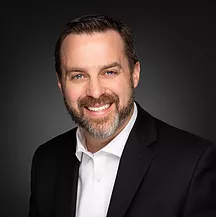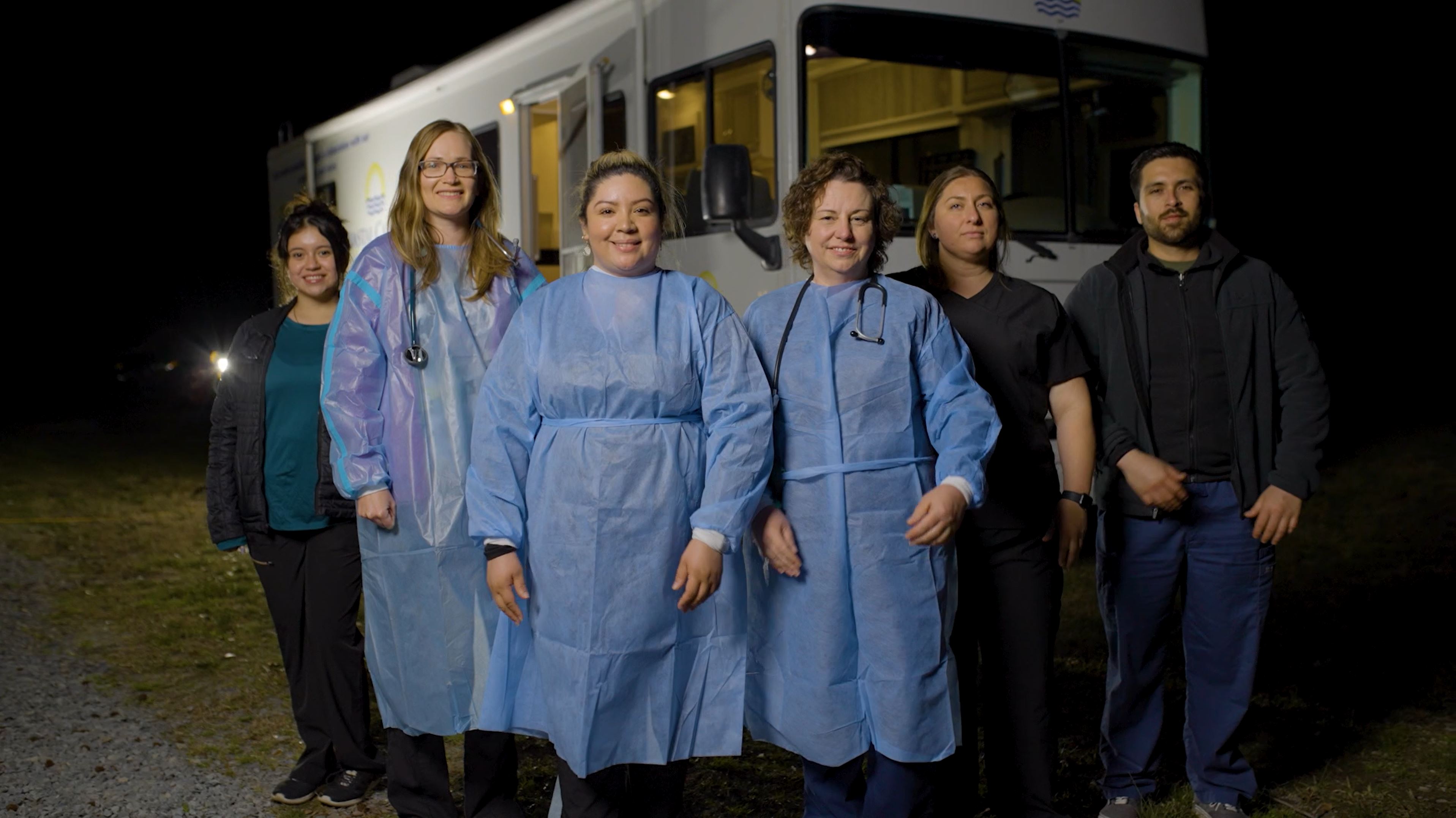Ultimate Guide to Starting a Mobile Medical Program
Ready to take your healthcare mission on the road? This definitive guide will provide all of the information you need to successfully launch your...
7 min read
 Travis LeFever
May 19, 2021 11:00:00 AM
Travis LeFever
May 19, 2021 11:00:00 AM

Learn actionable tips for turning your vision for a mobile dental clinic into a reality. This guide will walk you through every step to start and run your mobile dentistry program successfully.
What do you do when the patients who need you most can’t come to you?
You come to them.
Mobile healthcare models are a smart and logical approach to tackling health disparities in the United States. Social determinants of health, such as geographic and socioeconomic barriers to medical access, exacerbate the increased risk of disease that plagues certain demographics and pose a major public health concern. The end result is sicker people with poorer quality of life and a nation with increased healthcare costs.
As a medical professional, figuring out how to reach these populations poses a challenge. With the right approach, mobile dentistry might be your answer.
Mobile dentistry has the unique advantage of flexibility. You are able to bridge the barrier of access by bringing targeted care straight to the communities that need it, as well as adapt to their changing needs using existing community assets. An increase in mobile health units shifts the focus in these demographics from symptomatic care to preventative care - a norm for some, and a luxury for others.
Once you’ve been inspired and recognize the potential mobile dental services have for true change, it’s time to put the wheels in motion and figure out the next step in joining the 2000 other mobile clinics serving millions of Americans nationwide.
In this guide we’ll discuss tips that will help get your mobile dental clinic on the road to success.
The very first step in the process of launching a mobile dental clinic is identifying a need in a specific population, as well as measurable objectives. This need will guide the actions you take to reach your objectives, as well as provide quantifiable indicators of success.
Conduct a community needs assessment to determine the gaps between existing services and what people lack. Narrow your scope of services and determine eligibility. Unfortunately, the needs will always be greater than your capacity to provide, and you need to respect the parameters you place. Will you focus on screenings or one-time visits? Will you provide ongoing care with follow-ups? Be realistic in the impact of your efforts.
The scope of service you determine will affect funding and equipment needs - consider what is realistic for your practice within your mobile clinic’s constraints. Can you justify the cost, resources and equipment required, and time spent on one extensive surgery plus follow-up care? Or is widespread preventative care your goal?
In addition to your research on dental health disparities and deficiencies in your target demographic, consider conducting a focus group with members of the community to incorporate first-hand perspectives. Work with local clinics to avoid conflicts of interest. View this as collaboration and not competition - check with Medicaid and other records to make sure that instead of seeing the same patients, you are filling the gap and seeing patients who can’t see a dentist. Recognize that you are working towards a common goal.
Once you’ve pinpointed your target demographic and their needs, take time to understand their beliefs and attitudes. Are there biases or cultural differences that will affect the delivery of care? Know your audience.
Remember: Be specific when defining your target demographic, scope, and measurable objectives. This will allow you to track the success of your program and quantify the real life difference you are making in people’s lives.
Evaluate options for locations where you will treat your patients, as well as how. You need the right equipment as well as a set location. Potential mobile sites include nursing homes, underserved schools, and remote communities. The goal is to minimize interruption in your patient’s day, as well as logistic complications. In what common area can you meet the most people within your target demographic?
Your equipment will include not only the tools necessary as determined by your scope of services, but your mobile dental vehicle.
Decide whether you will be purchasing or leasing a new or pre-owned mobile dental trailer. This vehicle will require maintenance, insurance, as well as a driver and home base. Look for a vehicle with disability access to ensure you can provide care for all of your patients.
New or Used Mobile Dental Trailers?
When deciding between new and pre-owned, remember that a pre-owned mobile dental vehicle can be just as safe and reliable. This option is more cost-effective if you have limited funds or would rather invest your funds elsewhere.
Keep space constraints in mind. Coordinate your equipment with your vehicle for the most ergonomic design for both provider movement and patient experience. The goal is efficiency to maximize care time and funds - two limited resources when providing patient care, especially to underserved communities.
Mission Mobile Medical has helped healthcare providers find safe pre-owned mobile dental units for sale at reasonable costs. Each unit is backed by a 10-year warranty to help put your mind at ease when planning your community program.
Remember: Having a reliable mobile dental vehicle will be essential to your program - do your research on vehicles and warranties before making a decision. Take your time and ask questions.
You can also consult Mission Mobile Medical’s Complete Mobile Clinic Buying Guide for a detailed, comprehensive overview of what you should know.
Much of your fiscal and labor needs will be guided by your established scope of services.
Your budget will need to account for initial mobile clinic procurement, as well as overhead and fixed costs. Your budget will likely include but is not limited to:
When buying equipment, don’t skimp on quality. You want equipment that is reliable and delivers cost-effective care. Repairs down the line compromise both time and financial resources - two factors that reduce efficiency and take time away from potential patients.
Financial burden can be improved by efficiency. Allow for little downtime - the dentist should be with the patient providing care for as much time as possible to allow for the best cost per minute ratio. Aim for efficient ratios of travel time to treatment, and number of site days to treatment.
Delegate tasks to auxiliary staff. Auxiliary staff should perform the highest level of tasks that they are trained, capable, and legally authorized to do. Enlist volunteers when you are able. Dental and hygiene students as well as volunteers sourced from local agencies and organizations can provide support to your operation while minimizing cost when they are provided with clear expectations.
Remember: When providing care to underserved communities with your program using limited funds, efficiency is key. Time is money! This encompasses everything from workflow design within your mobile unit, to effective communication with your mobile site host to avoid scheduling hiccups. In addition to being a well-oiled machine, utilize auxiliary staff and volunteers to help decrease costs.
Now that you have your budget in place, you need the funds.
Build relationships with people who believe in your cause and want to be a part of your vision. If you have a potential beneficiary that you are not sure would want to contribute, it’s worth asking. Communicate the value of your program and prove that you have a detailed and well-thought out plan of action, as well as fiscal integrity. Be prepared to answer any technical questions.
It can be intimidating to ask someone for money. Someone is more likely to donate if you describe specifically the impact and return on investment their donation could have, or if they have a special connection to the cause. Give people the opportunity to give gifts in someone’s name.
Find generous local organizations with similar goals and values that want to join forces. Prioritize developing relationships with these benefactors instead of focusing on a short-sighted one time donation. Loyal givers will prove invaluable for sustaining your program. Keep long term financial relationships in mind.
Remember: Clearly communicate your vision and plan to potential donors. Show them the impact that could only be made possible with their help, and tell them exactly what their money is going towards.
If you need resources to help guide your fundraising efforts, Mission Mobile Medical has the resources to help you get you started. Check out our Ultimate Guide for Fundraising for Your Mobile Medical Program.
Your well-planned, well-funded mobile dental program won’t help those in need if no one knows you exist.
One place to start in the quest to increase visibility within the local community is your state agency, which can provide you with resources for community outreach. Your mobile dental vehicle itself provides advertising opportunity - just make sure that both the message and contact information are clear.
Make local clinics, food pantries, schools, and community centers aware of your services so that they can refer patients to you and spread the word to like-minded organizations. Work together with local dental offices to ensure all members of the community are getting the care they need, and refer your patients to more specialized services if needed. Reassure them that you are not competing for patients, but collaborating, and have a system in place to verify this.
Beyond advertising, local partnerships can provide insights into the unique needs of the community, advocate on your behalf, and acquire feedback. A solid community network will be invaluable in sustaining your program when resources and program security fluctuate.
Remember: Program visibility is key in reaching individuals who can benefit from your mobile dental services. Build a community presence so that you can work together with other organizations towards the common goal of minimizing oral health inequity related to inaccessibility.
In all of the preparation you take when designing your mobile dental program, you need to account for how you handle risk. Some of this preparation comes in the form of insurance, whether it is malpractice or vehicle insurance. Others come in the form of proper compliance with standardized procedures.
Follow established standards of care and procedure. Clearly outline informed consent to procedures that legally define a party’s responsibilities. Become familiar with your state’s governing regulations, and make a plan for how your operation will comply. Make sure all of your employees and volunteers are familiar with HIPAA.
Consider what emergencies you will be equipped to manage, as well as proximity to the nearest emergency response units. Follow procedures to identify risk early, as well as prevent future dental incidents. Decide on protocol for handling occupational hazards. Provide clear written instructions for patients following appointments when necessary, and make sure your patient understands them before leaving.
Stay organized with your records and equipment. Store your records and information securely, and create a standardized system for maintaining supplies for your mobile dental units. Label storage containers so that you don’t have to guess where anything is when you need it in a pinch, and keep “like” with “like.” Have a set quantity of each item that you will always keep on hand, and always keep these supplies in the same place. The last thing you want is to be several hours away from home base only to realize you did not bring enough supplies.
Don’t overextend yourself and feel pressure to provide care that you are not equipped to perform. Although you are in this industry to help those in need and it can be tempting to make a special request for someone who truly needs it, you have to remember that your time and resources are limited and you might be diverting these resources from your defined goals.
Remember: Standardize everything from procedure to supply counts to maximize efficiency and minimize risk of slip ups. In the case of slip ups, have protocols in place. Although it will be tempting to overextend yourself, don’t lose sight of your program’s goals. After all, you can’t help anyone at all if you’re worn thin.
Establishing a clear and detailed plan to accomplish your goals gives you the best chance at making a true difference with your mobile dental health program. With careful research you can employ well-informed, evidence-based tactics to address the dental health disparities in your chosen community and improve both disease burden and quality of life for those who need you most.
If you are looking for information on how to start a mobile medical program, click here to read The Ultimate Guide to Starting a Mobile Medical Program.
Mission Mobile Medical is your trusted partner in your mobile clinic needs. Whether you are looking to buy a pre-owned vehicle, need help with fundraising, or are just getting started, our team at Mission Mobile Medical is in your corner.

Ready to take your healthcare mission on the road? This definitive guide will provide all of the information you need to successfully launch your...

Looking for the best way to market your mobile medical clinic? We’ve got you covered. Read on for the best tips on how to market your mobile health...

Starting a mobile medical clinic? Learn the easy way from these most common mistakes that mobile medical clinics make so you can start and run your...